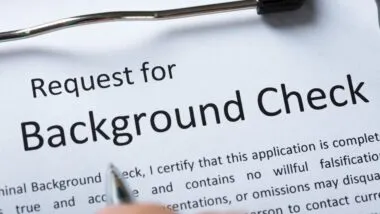 False advertising generally refers to misleading or untrue marketing claims that companies make about their products. Companies usually make misrepresentations about their products to induce customers to pay more or even purchase a product that they would not have considered otherwise.
False advertising generally refers to misleading or untrue marketing claims that companies make about their products. Companies usually make misrepresentations about their products to induce customers to pay more or even purchase a product that they would not have considered otherwise.
Shortly after the proliferation of advertising in the early 1900s, false advertising was made a crime in 44 states. States followed with statutes addressing particular types of false advertising that subject companies to fines and other penalties for violations. Consumers have also used lawsuits, specifically class action lawsuits, to hold companies responsible for false advertising.
There are several types of false advertising generally. These include mislabeling, bait-and-switch, failure to disclose, flawed research, and product disparagement or trademark infringement.
If you believe that you were the victim of false advertising practices, you may be entitled to compensation. Get help today from the experienced attorneys at Bradley Grombacher.
Mislabeling
Mislabeling is a common form of false advertising and includes situations where companies use false or misleading information on product packaging or in related advertising materials such as websites.
Companies can also make false claims about a product’s price by claiming that the good is on sale based on a price that it was never offered for sale at. Recently, a number of outlet stores have come under fire for price deception, including Ann Taylor, Michael Kors, and North Face.
Companies also engage in false advertising if they make false or deceptive claims about the quality or origin of their product. Recently, companies have been hit with false advertising lawsuits over “Made in America” claims. While the product may have been assembled in America, the company sourced the parts from foreign countries. According to the consumers in the lawsuits, they felt deceived because they believed they were purchasing a product solely from the United States and they often paid more for that product.
False environmental claims can also be considered false advertising. These include using terms like “biodegradable, “recyclable,” and “environmentally friendly” on product packaging. Certain customers say that they pay more for products with environmental claims on the packaging. However, if these terms are not based on reliable scientific evidence, then they can be considered false advertising.
Bait-and-Switch
If a company uses claims about the price or quality of a particular product or service with no plans to sell or provide that service at the price offered, they may be engaging in “bait-and-switch” false advertising.
Sometimes advertisers attempt to lure customers in by offering incredible deals but change the deal after the customer has already invested a substantial amount of time and energy into negotiating with the advertiser. In addition to being frustrating, any bait-and-switch advertising is illegal under Federal Trade Commission regulations.
Failure to Disclose
A company that does not include material information about its product or only partially discloses information can also be considered to be engaging in false advertising. This information is especially important when it comes to side effects of prescription and over-the-counter drugs, but it can also apply to cleaning products and other items.
Many products are subject to additional risk disclosures depending on the type of product sold. Consumers need to be aware of the dangers of items they purchase and how to avoid them. Failing to disclose this information can lead to personal injury or property damage as well.
Flawed Research
If a product’s labeling or related advertising makes claims based on flawed research, it is considered false advertising. Under federal law, flawed research includes “representations found to be unsupported by accepted authority or research or which are contradicted by prevailing authority or research.”
Product Disparagement and Trademark Infringement
Companies can also get into trouble for false advertising if they falsely disparage a competitor’s product as a part of their marketing. Similarly, if a company uses another company’s trademark to imply some type of relationship, it can be considered false advertising.
Duped By False Advertising Practices?
These types of false advertising confuse consumers and generally lead them to spend more on a product then they would have. False marketing can also induce consumers to purchase a product that they would not have otherwise.
There are a number of remedies for false advertising, including injunctive relief, corrective advertising, and paying damages. If you have been duped by false advertising, you should know that you and other consumers have rights under consumer protection laws. Get help today from the experienced attorneys at Bradley Grombacher.
ATTORNEY ADVERTISING
Top Class Actions is a Proud Member of the American Bar Association
LEGAL INFORMATION IS NOT LEGAL ADVICE
Top Class Actions Legal Statement
©2008 – 2026 Top Class Actions® LLC
Various Trademarks held by their respective owners
This website is not intended for viewing or usage by European Union citizens.















14 thoughts onWhat Are the Different Types of False Advertising?
did i ask